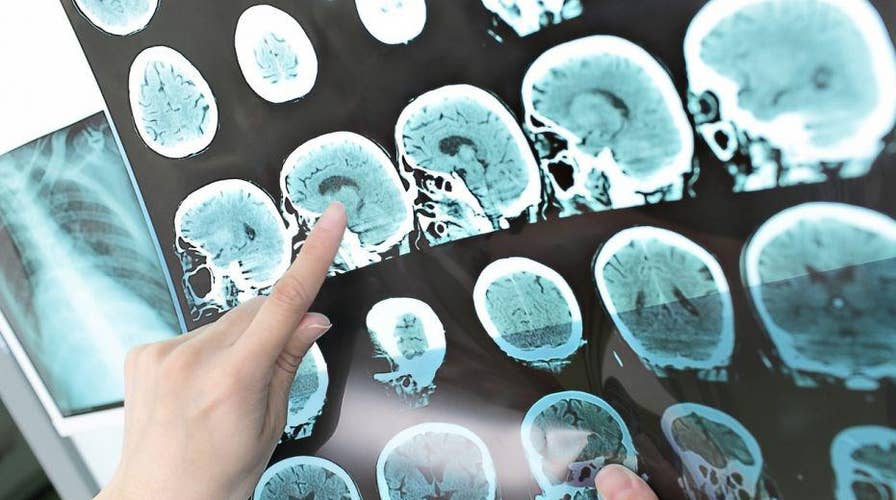What is multiple sclerosis?
Multiple sclerosis or MS, is a nervous system disease that affects the brain and spinal cord. Reports estimate that 2.3 million people are living with MS worldwide, but what are the symptoms and how is MS treated?
A young mother from Anchorage, Alaska, who was diagnosed with multiple sclerosis (MS) more than 10 years ago says an experimental stem-cell treatment has left her “practically symptom-free.”
Amanda Loy was 27 years old when she was first diagnosed with the disease, which typically affects the brain and spinal cord, also known as the central nervous system. MS can be debilitating and there is currently no cure, according to the Multiple Sclerosis International Federation.
ACTRESS SELMA BLAIR, 46, REVEALS MS DIAGNOSIS: 'I AM DISABLED'
Following her diagnosis, Loy told KTVA she tried different treatments to alleviate the symptoms of MS, which can include numbness or weakness in the arms or legs, double vision, dizziness and a tremor, among other signs.
"In that first year, I feel like I had all these big improvements of my symptoms, so that one by one, I stopped taking all the medications I was on before."
"It was hard having a young child. At that time, we had stairs in our home, so carrying him up and down the stairs worried me because I fell a lot," she told the news station, adding her balance worsened with time and she also began to have issues with her bladder.
Hoping to find relief, Loy eventually traveled to Northwestern Medicine in Chicago, where a doctor at the facility, Richard Burt, was conducting a study that involved injecting patients with Relapsing-remitting MS with their own stem cells. Relapsing-remitting MS (RRMS) is a type of MS that's “characterized by clearly defined attacks of new or increasing neurologic symptoms. These attacks — also called relapses or exacerbations — are followed by periods of partial or complete recovery (remissions),” the National Multiple Sclerosis Society explains online.
The study, which was published this week in The Journal of the American Medical Association, involved 110 patients with RRMS. Some patients in the study were given drug treatment for their condition, while others received the one-time stem cell procedure. For the latter group, some of the patients’ stem cells were collected before they underwent “several” rounds of chemotherapy to purposely weaken their immune system, KTVA reported. Then, doctors injected the stem cells into the patients to essentially re-build their immune system.
Loy, who underwent the stem cell procedure in 2012, did find relief — almost immediately.
"Before I left the hospital, I was off of one of my bladder drugs," Loy said, noting her symptoms continued to improve with time.
"It was little things. Like I didn't have to sit down to get dressed," she added. "In that first year, I feel like I had all these big improvements of my symptoms, so that one by one, I stopped taking all the medications I was on before."
Years later, she says she's now "practically symptom-free."
MOOSE WANDERS INTO ALASKA HOSPITAL FOR A 'MORNING SNACK'
While the study notes more research is needed “to replicate these findings and to assess long-term outcomes and safety,” and there is a possibility that Loy’s MS could relapse, the Alaska woman says she feels “lucky” the treatment appeared to be successful for her.
“It doesn't work for everybody, so I feel pretty lucky that it worked for me,” said Loy, who is now training for a marathon, according to KTVA.









































